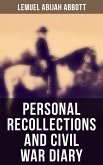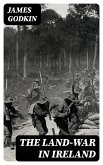In "Some Recollections of Our Antislavery Conflict," Samuel J. May presents a compelling autobiographical account that intricately weaves personal experiences with the broader social and political currents of the mid-19th century abolitionist movement. With a distinctive narrative style that combines eloquent prose and passionate advocacy, May sheds light on the moral and ethical considerations that ignited a fervent struggle against slavery. His recollections are situated in the rich literary context of transcendentalism and reform literature, encapsulating the fervor of an era desperate for social justice while reflecting the complexities of human emotion entwined with activism. Samuel J. May, a prominent Unitarian minister and abolitionist, was deeply influenced by the prevailing humanitarian ideals of his time. His commitment to social justice was shaped through personal relationships with such figures as William Lloyd Garrison and Frederick Douglass, as well as his own moral convictions. May's engagements in various reform movements, including women's suffrage and education, undoubtedly fueled his perspective, providing a unique lens through which he articulated the struggle against slavery. This book is not only a vital historical document but also a powerful narrative that resonates with contemporary social justice movements. Readers seeking to understand the foundations of American abolitionism and the intricate interplay of personal conviction and collective action will find May's insights enlightening. "Some Recollections of Our Antislavery Conflict" is essential for anyone wishing to explore the depths of moral courage in the face of societal injustice.
Dieser Download kann aus rechtlichen Gründen nur mit Rechnungsadresse in A, B, BG, CY, CZ, D, DK, EW, E, FIN, F, GR, H, IRL, I, LT, L, LR, M, NL, PL, P, R, S, SLO, SK ausgeliefert werden.









